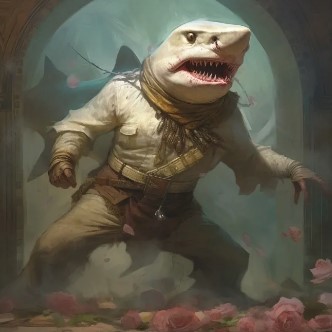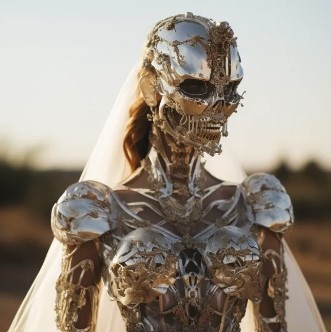
What is High Concept?
The term ‘high concept’ applies not only to screenwriters, but to prose writers and playwrights as well.
WRITING
S.C. Farrow
8/15/20235 min read


I recently found myself engaged in a conversation with a fellow writer about the meaning of the term ‘high concept’. In the course of our conversation, it occurred to me that they didn’t understand exactly what ‘high concept’ means. It is a confusing term, but it’s one that writers, especially those who are aspiring to be professional writers, need to understand.
If you’re an aspiring screenwriter, you will almost certainly have heard this term somewhere on your screenwriting journey. If you’re a prose writer, it’s possible you’ve never heard this term at all. However, the term ‘high concept’ applies not only to screenwriters, but to prose writers and playwrights as well.
SO, WHAT EXACTLY DOES HIGH CONCEPT MEAN?
Well, the definition of high concept is a notion or idea that can be easily and succinctly communicated, understood, and marketed, typically in the context of creative works such as films, books, or television shows. It is a term commonly used in the entertainment industry to describe a project that has a clear and compelling premise that can be quickly understood and that generates immediate interest.
A high-concept idea is characterised by its ability to capture attention and generate excitement based on a concise and intriguing description alone. It often combines familiar elements or themes in an unusual or unexpected way, creating a strong hook that appeals to a wide audience. High concept ideas are usually simple, yet powerful, and resonate with people across different demographics.
One of the key aspects of a high concept is its marketability. A high concept idea can attract significant attention from producers, publishers, or studios. This is because it offers a clear and marketable premise that can be easily pitched and sold. This is particularly relevant in industries where competition for attention and resources is fierce.
High concept ideas are often used in the entertainment industry to quickly convey the essence of a project. For example, a film pitch might be described as "Die Hard on a bus" (Speed) or "Jaws in space" (Alien). These comparisons instantly communicate the core idea of the project by referencing well-known and successful works.


The Terminator meets any bride movie ever
Hollywood created the term "high concept" during the 1970s and 1980s, when studios sought films with large audiences and substantial profits. It was during this time that high concept films such as Jaws (1975), Star Wars (1977), and Raiders of the Lost Ark (1981) became box office successes. These films had simple yet compelling premises that resonated with audiences, leading to their widespread popularity.
In addition to films, high concept ideas are also prevalent in other forms of media. Yes, there is such a thing as high concept fiction! In literature, authors often strive to create high concept book ideas that capture the attention of publishers and readers. Similarly, in television, high concept pitches are sought by networks (or streaming providers) looking for shows that stand out in a crowded marketplace.
High concept projects can capture the attention of audiences and investors alike, leading to increased chances of success at the box office or on television. Due to their broad appeal, high concept ideas are also more likely to attract top talent, both in front of and behind the camera.
Overall, the term high concept refers to a captivating and easily communicable idea or premise that can generate significant interest and appeal to a wide audience. It is a term commonly used in the entertainment industry to describe projects with clear and marketable concepts that capture attention.
In a nutshell, high concept means that the STORY is the STAR of the movie/book/play.
Movies like The Terminator, Jaws, and Snakes on a Plane are all big budget/high concept films. And the title of these movies alone gives us a good indication of what the concept is about.
However, there are also low budget/high concept films such as The Blair Witch Project, Paranormal Activity, Cube, Pi, El Mariachi and Mad Max (yes, the original Mad Max/Road Warrior flick was a low budget movie). And again, the titles give us a good idea of exactly what kind of movie we’re going to see.
BACK TO THE QUESTION: WHAT IS HIGH CONCEPT?
Well, there are varying ideas about what it means, but essentially, a high concept idea is one that:
is unique
appeals to a wide audience
can be summed up in one sentence (i.e., you can instantly see the whole movie)
Now, there’s a lot of argument about this one sentence. Some say it should be no more than twenty-five words. It’s a prescriptive idea that new writers often cling to with unnatural tenacity.
Truth be told, this sentence can, in fact, be as long as three sentences—or even four, five, or six (any more than that, and you’ve probably got some serious concept problems). Sometimes these sentences show the three-act structure, and sometimes they don’t. The only thing that really matters is that they sum up the STORY.
There are additional things that can help you decide if your idea is high concept. They include:
a degree of originality
highly visual
possesses a clear emotional factor
sparks a ‘what if’ question
has high stakes
has a time limit
Okay, so you know all this, but try as you might, your story still isn’t high concept. What can you do to fix it?
Well, one problem is likely to be that your idea isn’t unique enough. You need to go back and brainstorm ways to make your concept more different and original. The entertainment industry (print or moving image) loves ideas that are ‘familiar yet different’.
Another problem could be that you’re clouding the concept with irrelevant details. When you’re working on your concept, make sure you trim the fat. There are no if’s or but’s about this. If it has nothing to do with the spine of your story, cut it.
Genre confusion. This problem is a biggie. Each genre has its own rules and conventions. If you are writing a genre piece, it behooves you to know what those rules and conventions are, even if it’s just so you can break them. Make sure you know which genre suits your concept.
What about conflict? What’s at stake in your idea? Who is going to lose what if something doesn’t happen? If your conflict isn’t strong enough, or unique enough, it’s back to the drawing board.
And finally, the ending. Your ending could be vague, or you could have no ending at all. If you want to attract the attention of a producer or a publisher, you have to give them the whole story, not just the beginning and that great bit in the middle, but the whole story.
So, there it is, in a nutshell. Hopefully, this has inspired you to work on the next best-selling high concept idea!
High concept
High concept definition
High-concept fiction

© 2026. All rights reserved
In the spirit of reconciliation, we acknowledge the Traditional Custodians of Country throughout Australia and the Torres Straight Islands and their connections to land, sea, and community. We pay our respects to elders past and present and extend that respect to all First Nations and Torres Strait Islander peoples today.
ABN: 19 569 432 238





